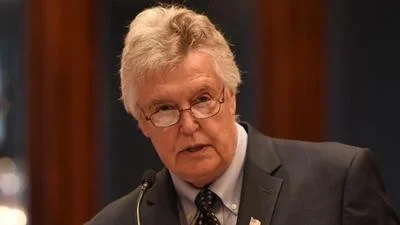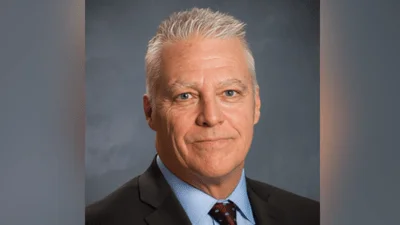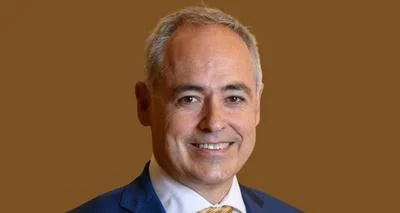Allen Skillicorn took to social media in September to point out the heavy burden of property taxes on families in Illinois. | Contributed photo
Allen Skillicorn took to social media in September to point out the heavy burden of property taxes on families in Illinois. | Contributed photo
Algonquin's Allen Skillicorn, the Republican candidate for the state House seat in District 66, questioned House Speaker Mike Madigan's (D-Chicago) low property taxes in his blog last week.
"Speaker Madigan only pays $2,568 on his 3,500-square-foot home to the Chicago Public School (CPS) district, yet we here in the suburbs we pay 76 percent more to our local schools!" Skillicorn said.
While raising Chicago property taxes to equalize property taxes across the state might seem like a solution to the high rates in the suburbs, it could have an unintended effect and lead to profits for Madigan, Senate President John Cullerton (D-Chicago) and other politicians who are also tax lawyers.
Chicago Mayor Rahm Emmanuel proposed increasing the city's property taxes by almost $600 million, spread over four years. The rational for the tax increase is that the additional funds would help the city balance its budget. A large portion would be allocated for the police and fire pension funds and CPS construction projects.
As taxes rise, it is likely that an increased number of property owners would challenge the assessor's valuation of their properties. The process is complicated and often requires the assistance of an attorney. Madigan and Cullerton are both tax attorneys whose offices assist owners in appealing the assessed value of their properties.
In Cook County, the board of review received approximately 400,000 property valuation appeals and nearly two-thirds were successful. The law firms that specialize in these appeals receive between 25 and 50 percent of the reduction.
Illinois Policy Institute writer Austin Berg recently wrote "Meet the Politicians Getting Rich Off Chicago's Property-Tax Scheme." His scathing article pointed out the conflict of interest involved when politicians profit from property tax increases and the ensuing appeals process.
"Illinois House Speaker Mike Madigan and Chicago Alderman Ed Burke both run law firms specializing in the lucrative field of Cook County property tax appeals, one of the most inefficient, corrupt systems in urban politics," Berg said in his article. "Illinois Senate President John Cullerton is a member of a large law firm that handles a range of issues, including property tax law. The three have held political office in Illinois for a combined 126 years."
While CPS would benefit from the proposed tax increase, it already received additional funding this year due to the temporary "stopgap" budget passed in late June. The budget fully funded education, including an additional $250 million in poverty grants for districts with low-income students. CPS received $100 million of those funds and the remaining $150 million was distributed to downstate school districts.
While CPS received a bailout from the stopgap budget, most suburban school districts depend on the local tax base to fill the gap between unfunded state mandates, expenditures and state funding. There are few resources available for additional funding, so municipalities and school districts turn to property taxes. Almost two-thirds of property tax dollars in Illinois are used to fund local school districts.
Skillicorn took to social media in September to point out the heavy burden of property taxes on families in Illinois. He quoted from Berg's Illinois Policy Institute article "Home is where the hurt it: How property taxes are crushing Illinois' middle class."
"Property taxes become a second mortgage that homeowners can never pay off, or an endless expense for a small business that grows more costly each year," Berg wrote. "The Schurtz family’s first year of property taxes came out to 4 percent of the value of their Geneva, Illinois, home. For many Illinoisans, the burden is even heavier."
Skillicorn has worked in the local arena to prevent the dramatic rise in property taxes that other municipalities have faced. After taking office as a village of East Dundee trustee in 2011, he worked to freeze the property tax levy while increasing local economic growth. Property taxes in the village have dropped due to the increased revenue brought in by new and expanding businesses.
Skillicorn plans to take his experience to Springfield and work with his colleagues to reduce the burden of property taxes on Illinois residents.
"My first priorities are property tax relief and limiting Madigan’s power. Help me rein this abuse," Skillicorn said.





 Alerts Sign-up
Alerts Sign-up